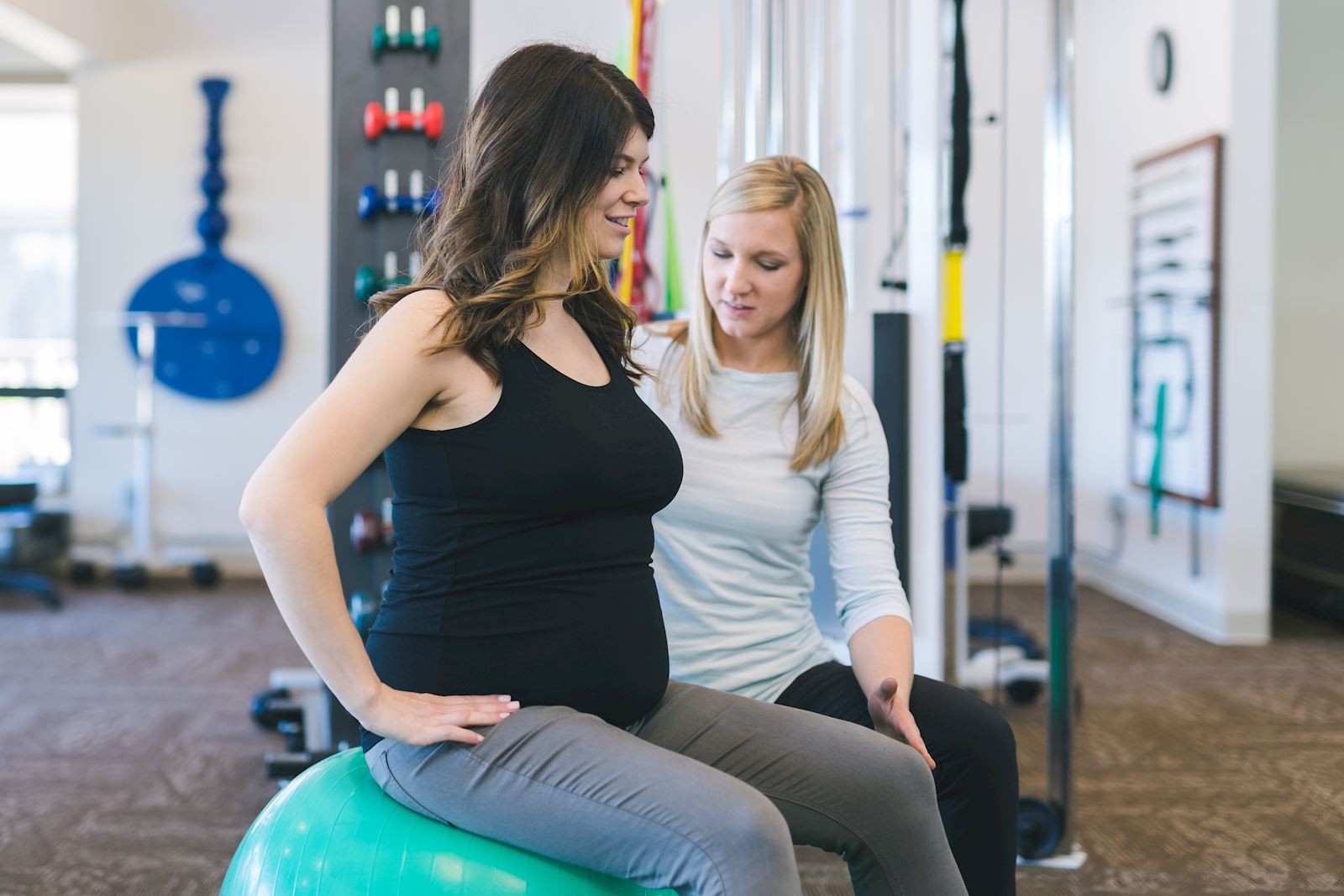Physical therapy while you’re pregnant might seem questionable, but when done by an experienced physical therapist, like Jill Berg, PT, it can be a great way to help a variety of symptoms, like:
- Soft tissue or joint mobilization
- Pelvic alignment and posture
- Trigger point release
- Proper body mechanics — proper lifting techniques, body mechanics for injury prevention, and correct positions to sit, stand, and sleep.
- Relaxation techniques
A common area of weakness during pregnancy occurs in the pelvic floor. The pelvic floor muscles provide internal organ support, control bladder and bowel movements, and enhance sexual function. This muscle group is often weakened during pregnancy and postpartum — and as a result, urinary incontinence, sexual dysfunction, and decreased pelvic core support can occur, which can be addressed by a pelvic floor specialist.
Making Your Treatment Plan
Your physical therapist will conduct a thorough evaluation of your current state and determine what treatment plan is right for you, covering many things — appropriate sleeping and sitting positions, recommended stretches, core strengthening options, and exercises to complete at home.
As the pregnancy progresses, hormonal changes cause relaxation of ligaments in preparation for childbirth and influence how the body feels. Changes in the center of gravity and added weight can affect posture, causing additional strain or pain. Exercising and strengthening before and during pregnancy can have positive benefits on labor and delivery, including a shorter or less difficult birth. Often, positional modifications are made while exercising during pregnancy for safety and comfort.
It is important to continue your exercises at home to make the most of your physical therapy plan. Some of the most common exercises include core work — depending on what phase of pregnancy you are in.
Preparing For Baby!
Delivery
Not only is physical therapy useful for pain relief and relaxation; it can make delivery shorter and smoother. Physical therapy also addresses safety with postures and mechanics after the birth of baby to prevent pain or dysfunction, and post-partum exercises to assist with restoring core and pelvic floor strength following delivery.
Postpartum
Bladder leakage, pain during sex, and pelvic pain are all common during the postpartum period. Postpartum physical therapy works the pelvic floor muscles to address these issues. Your physical therapist will also work with you on things like:
- Regaining pre-pregnancy strength
- Shedding pregnancy weight gain
- Breastfeeding related issues — like clogged ducts.
- Reducing scar pain from C-sections
- Improving urinary and anal incontinence
Whether it’s your first or your fourth, The Iowa Clinic physical therapists are here to help you through your pregnancy pain. Visit our website or call 515.875.9706 to learn more.


